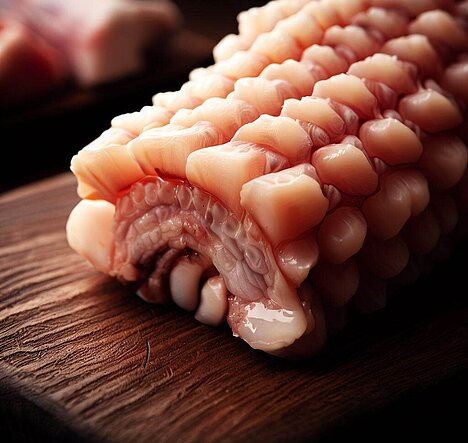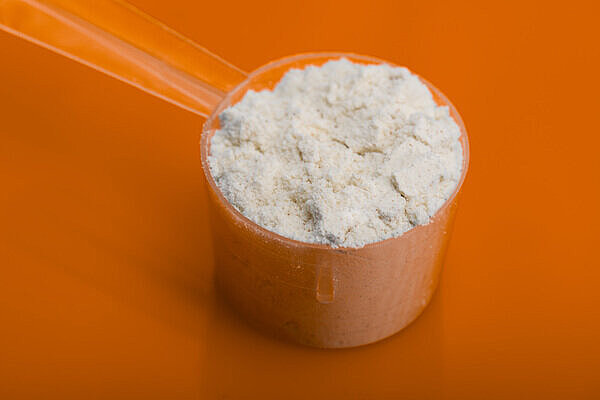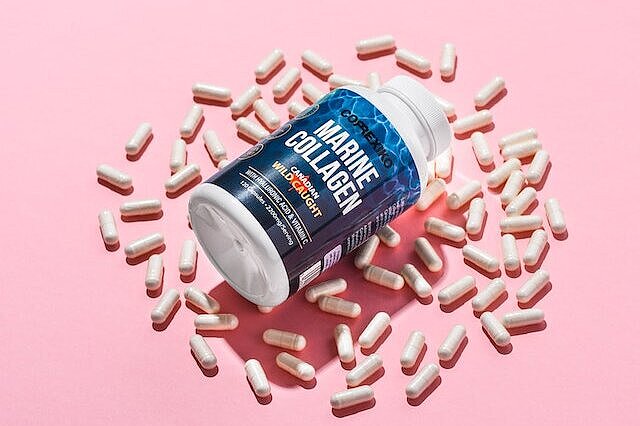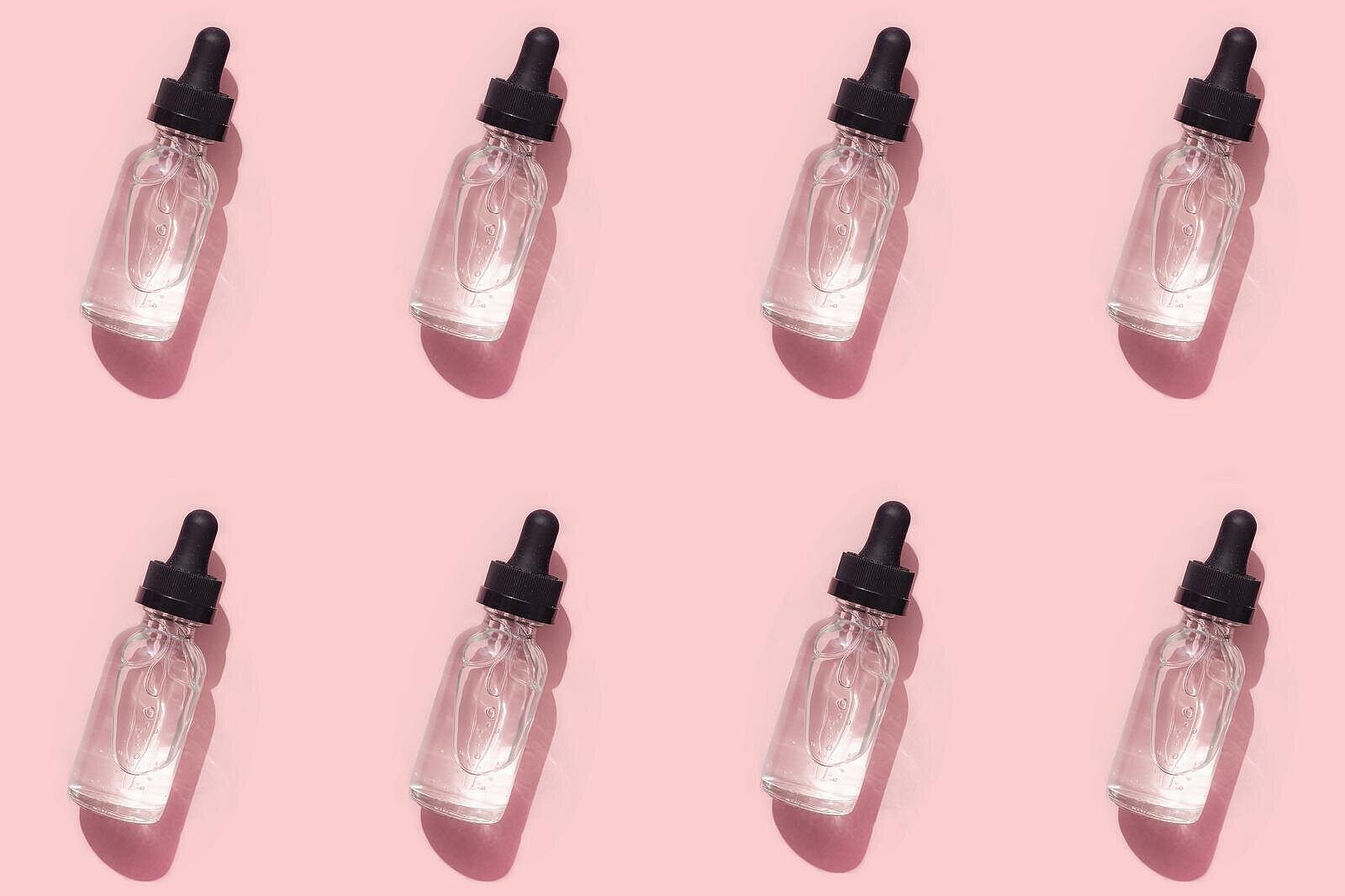Chondroitin

What is chondroitin?
Chondroitin is a so-called glycosaminoglycan, which consists of sugar molecules that bind to proteins. These compounds form large molecules called proteoglycans. Proteoglycans are important building blocks of cartilage, which cushions the bones in the dog's joints and protects them from wear and tear. They also ensure that the cartilage is elastic and shock-absorbent.
Your dog cannot produce chondroitin itself, but must ingest it with its food. Natural sources of chondroitin are primarily animal cartilage, tendons and bones. However, these are often not contained in sufficient quantities in your dog's food, especially if you feed him ready-made food. It can therefore be useful to give your dog chondroitin as a dietary supplement.
How does chondroitin work in dogs?
Chondroitin has several positive effects on your dog's joints. Firstly, it promotes the formation of new cartilage tissue and inhibits the breakdown of existing cartilage. Secondly, it has an anti-inflammatory and pain-relieving effect by reducing the production of pro-inflammatory messenger substances. It also improves joint lubrication by binding water in the cartilage.
Through these effects, chondroitin can help your dog suffer less joint pain and maintain or improve their mobility. This is particularly important for dogs suffering from osteoarthritis or other degenerative joint diseases. But even for young or healthy dogs, chondroitin can be a preventative measure to support joint health.
How is chondroitin dosed for dogs?
The optimal dosage of chondroitin for dogs depends on various factors such as the dog's weight, age and state of health. It also depends on whether you give chondroitin alone or in combination with other nutrients such as glucosamine or hyaluronic acid.
A general recommendation is to give your dog around 20 to 30 mg of chondroitin per kilogram of body weight per day. This means, for example, that a 10 kg dog needs around 200 to 300 mg of chondroitin per day. You can divide this amount into two or more portions and mix it into the food.
It may take a few weeks before you notice an improvement in your dog's joint function. So don't give up too soon and feed your dog chondroitin regularly.
Chondroitin is a glycosaminoglycan that forms proteoglycans and is important for your dog's joints. It supports cartilage formation, inhibits the breakdown of cartilage, has an anti-inflammatory effect, relieves pain and improves joint lubrication. The recommended dosage is about 20-30 mg of chondroitin per kilogram of your dog's body weight per day, preferably divided into several portions and mixed into the food. It may take a few weeks before improvements are noticeable.
If you notice any signs of hypersensitivity or poisoning in your dog, you should see your vet immediately. We are not a substitute for a vet, but we try to be as accurate as possible. Every dog reacts differently and we recommend you get a second opinion or consult your vet if in doubt.
Stay healthy and take good care of your four-legged friend!😊
Similar to Chondroitin
Glucosamine is available in various forms, e.g. as tablets, capsules, powder or liquid. You can give it directly into your dog's mouth or mix it into their food. The dosage depends on your dog's...
What is methylsulfonylmethane? Methylsulfonylmethane (MSM) is a natural substance that is produced from decomposed phytoplankton. It contains around 34% sulphur, a vital nutrient for humans, animals...
What is collagen? Collagen is a protein that is made up of amino acids. There are different types of collagen, which differ in their structure and function. The most common are types I, II and III,...
Hyaluron has various positive effects for your dog. Firstly, it supports skin health and can help with dry, flaky or inflamed skin. Hyaluron moisturizes and promotes wound healing. It can also make...



